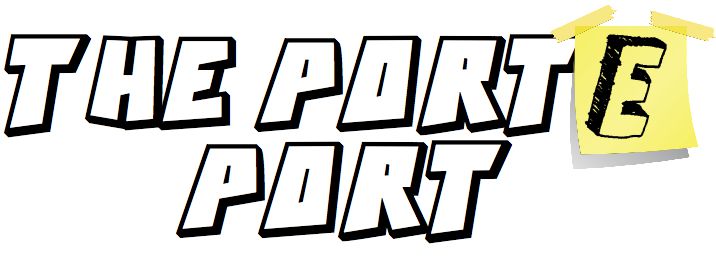Cormac McCarthy and Theme: Driving Your Readers Insane
It happened in one of those flashes that sneak up on you, then blind you until you get the idea out of your head and onto the page.
I was at a concert in Nashville, listening to Arlo Guthrie pluck away the old tunes, just as sharp as he ever was. He knew his audience, talking about freedom the way they did decades ago, to a crowd that was about thirty years older than I was.
There was a swirl of a time that came before. Suddenly, a story hit me, something western, something about the fragility of time itself.
In the middle of my frantic unloading of ideas, I decided to re-watch No Country For Old Men. It kept the tone I was going for and kept my creative juices flowing while I took a break.
I would need another post to talk about all the things that work in that movie, but what stuck out to me this time was the ending monolog. Tommy Lee Jones’ character, Sheriff Bell, describes his dreams, which are open to interpretation.
It’s that imagery that stuck with me days later. I think about each point of his dialogue and break down the many meanings and feelings it evokes.
That’s when I began to realize, as a writer, I want to drive my audience insane.
Am I the only one that hopes that the sentence I just put down on paper will rattle around in a reader’s head, causing them to reach down into their being to create a connection with their own experience?
Maybe it’s not about getting a spot for my book on a shelf, but rather renting space in a reader’s mind.
That’s not an easy thing to do.
The Power of Themes and Symbolism in Storytelling
Words can be just words, but sometimes they represent something deeper. That’s when they dig in and settle.
Let me show you the monolog from No Country For Old Men
If you can’t watch, here’s the quote from the book which is almost word for word:
“I had two dreams about him after he died. I dont remember the first one all that well but it was about meetin him in town somewheres and he give me some money and I think I lost it. But the second one it was like we was both back in older times and I was on horseback goin through the mountains of a night. Goin through this pass in the mountains. It was cold and there was snow on the ground and he rode past me and kept on goin. Never said nothin. He just rode on past and he had this blanket wrapped around him and he had his head down and when he rode past I seen he was carryin fire in a horn the way people used to do and I could see the horn from the light inside of it. About the color of the moon. And in the dream I knew that he was goin on ahead and that he was fixin to make a fire somewhere out there in all that dark and all that cold and I knew that whenever I got there he would be there. And then I woke up.” -Cormac McCarthy
The themes of the movie, and the book for that matter, all lead into the imagery here. They work together. That’s the thing about symbolism; you need to earn it.
The story is complex and there’s a lot of narrative elements working together. One of the themes follows Sheriff Bell. He’s an aging lawman that keeps seeing more and more horrible things done to people, by other people. He can’t wrap his mind around it. He can’t keep up. He thinks things are changing for the worse and nothing can stop it.
There’s actually a lot in the movie to suggest that it’s always been this way, however. Violence has always taken lives when the ones delivering that violence want something bad enough.
This monolog could be Bell preparing for his own death, it could symbolize that he longs for a different time, it could even be a reference that his father dealt with the same cold and dark that he does. That’s the beauty of symbolism, it allows us to bring a part of ourselves into the story, adds another piece of connection between us and the characters.
It’s where the writer and reader meet.
Balance Symbolism In Your Story
I’m going to be honest with you. I’ve been fighting for every sentence in this article.
Showcasing symbolism and pointing out something that worked for me is like saying I like my steak cooked a certain way. Just because I like it that way, doesn’t mean you will like it the same way.
Taking the next step and telling you just how you should add symbolism to your work is even more complicated.
I do know one thing, no matter the kinds of themes you are trying to put down on the page, it’s all about balance.
A story can quickly get out of hand when the plot hides behind wordiness. You may think opening your book with a chapter-long description of the forest in your setting is eloquent, foreshadowing the nature of the plot you are about to unfold, but your reader might not be able to get through it because they are quickly going to wonder if the whole book is like this.
(That was ironically they wordiest sentence in this article.)
First and foremost, it’s about the characters and what happens to them that will always be the meat of your story. You need to establish that before anything else. Theme is something that comes along the way as your plot develops. (Yes, even for you as the writer). Symbolism follows next, pointing towards the intricacy of the threads in your themes.
Writing a story is like a journey. You can map it out, have a plan, but the things that are most special happen after you start, along the way.
Pin this!
Be Inspired and Write Better Themes
The best thing you can do to improve your thematic writing skills is allow stories to inspire you. It’s as simple as that.
If you would like a suggestion, let’s stick with Cormac McCarthy. If you can handle a little violence…ok a lot of violence, try Blood Meridian: Or and Evening of Redness in the West. Some of the most beautiful prose I’ve ever read. And everything seems like it has more meaning under the surface.
I watched No Country twice in the past few days. I can’t remember the last time a story did that do me, where I just kept thinking about it and couldn’t get it out of my brain. I could hear Tommy Lee Jones rambling on into the very center of time itself. Or so it felt, in my brain.
I resisted, at first. I thought, how stupid, I just watched this! To hell with that line of thought! If you feel like you need that kick of inspiration and you need to take another look at the art you are creating too, then follow that feeling.
Inspiration is a fickle thing. When it shows up, never deny it!
If it means watching that movie again, reading that book again, listening to that song again, then let it happen. Write with those feelings flowing through you. The theme will come from that place.
Just think what your inspiration can lead to. Your story could be the very thing someone needs to read again.
Let that story drive someone crazy.
If you want to dive deeper into storytelling techniques to make you a better writer, join my newsletter. We will get geeky and look at more movies, shows, games, and books to find out what makes for a good story. Check it out:








